Past Events
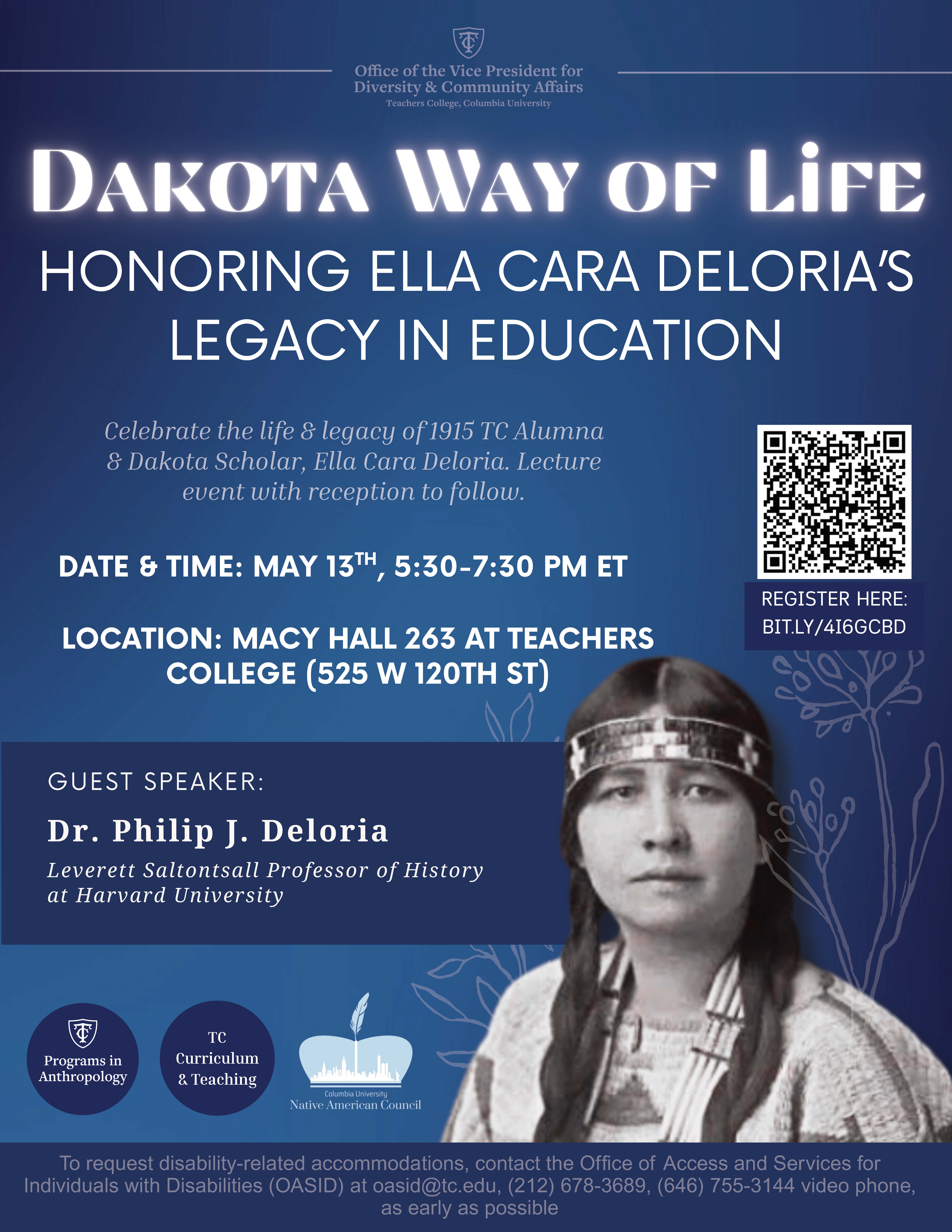
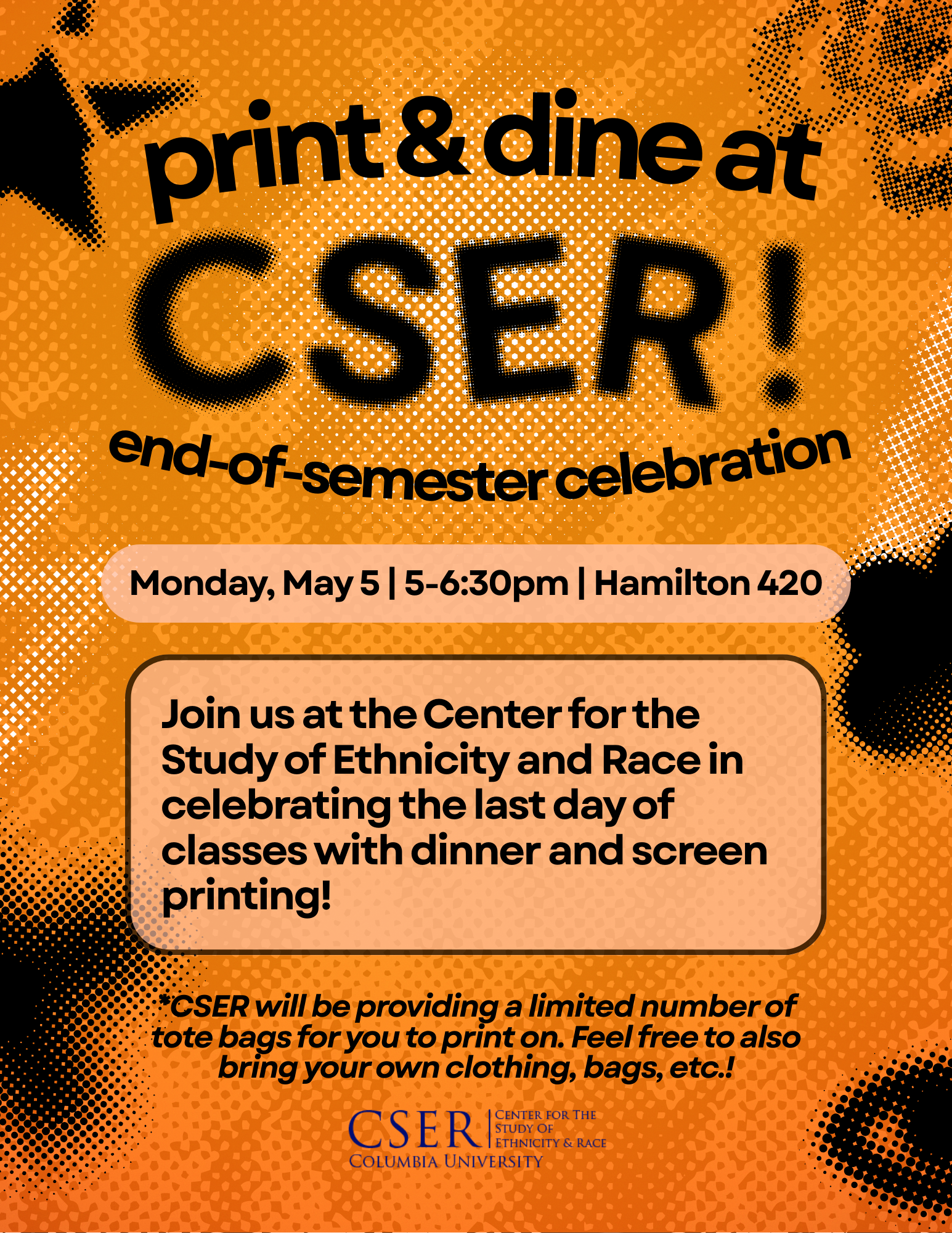
Join us at the Center for the Study of Ethnicity and Race on the last day of classes for dinner and screen printing, in celebration of the end of the semester! CSER will be providing a limited number of tote bags for you to print on, as well as screen printing materials and original CSER-related designs. Feel free to also bring your own clothing, bags, etc.
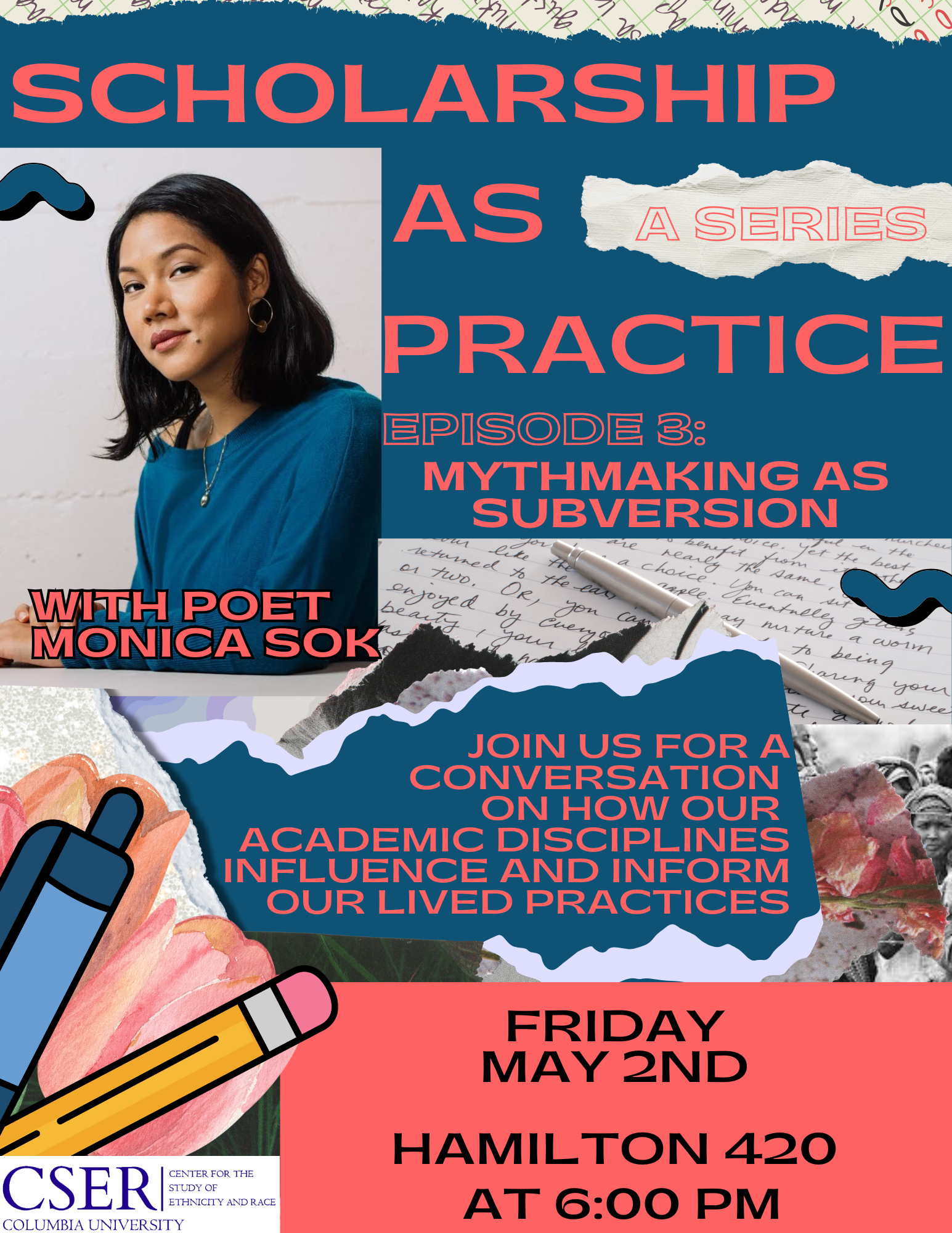
Join the Center for the Study of Ethnicity and Race (CSER) on Friday, May 2nd at 6PM in 420 Hamilton for our final installment of Scholarship as Practice, a new programming series at CSER that focuses on how our academic disciplines influence and inform our lived practices.
This event features Monica Sok (English, Barnard), the author of A Nail the Evening Hangs On (Copper Canyon Press, 2020) and Year Zero (Poetry Society of America, 2016). Her early poems mythologize her family’s experiences during the Khmer Rouge regime, while also addressing the role of U.S. imperialism in Cambodia. Through the lens of a second generation daughter, Monica explores growing up with familial silence and comes to terms with intergenerational trauma, passed down by a family of genocide survivors. Her poetry embraces the fragments of collective memory and builds toward wholeness and reclamation.
Dinner provided!
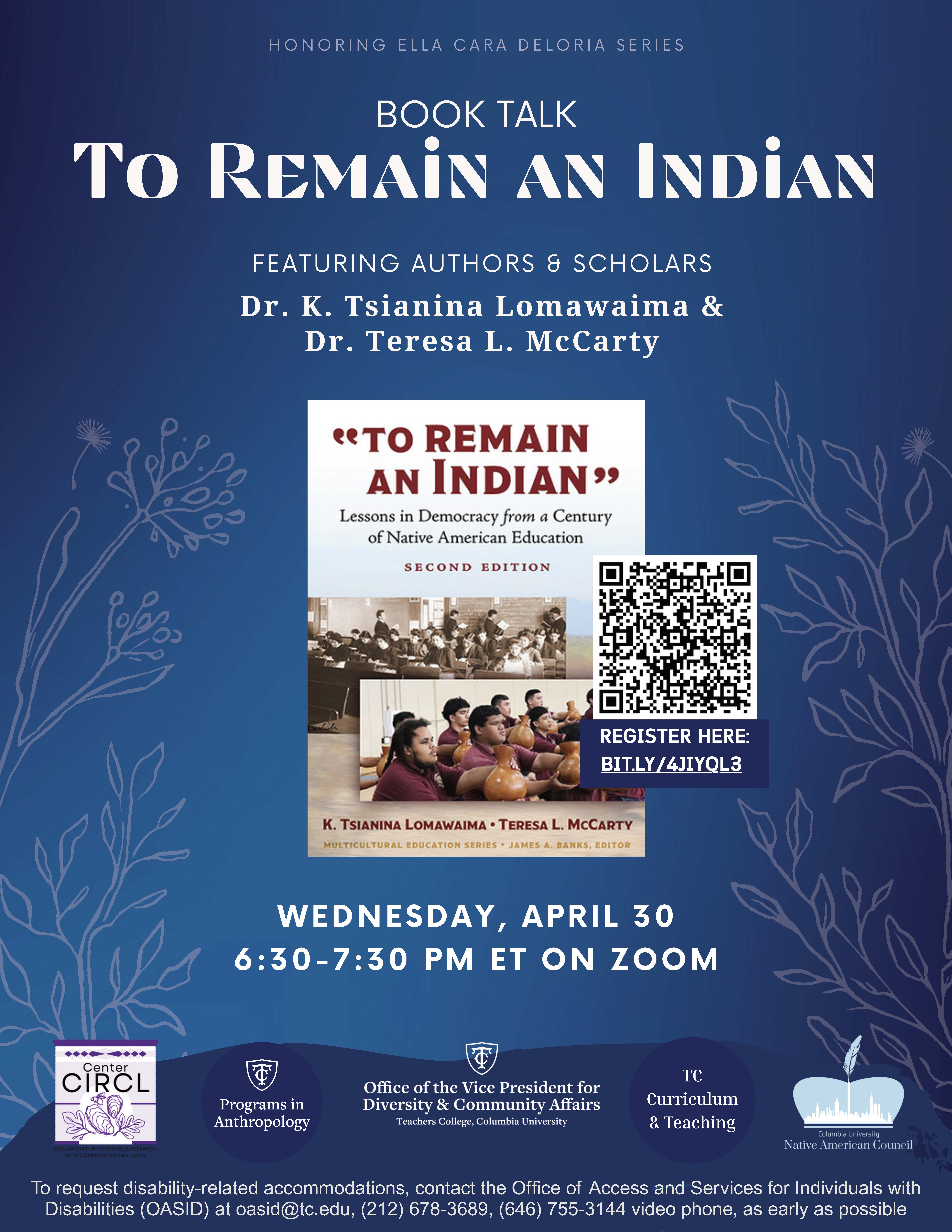
Join Dr. K. Tsianina Lomawaima and Dr. Teresa L. McCarty for an in-depth discussion and reflection on Indigenous education from their book “To Remain an Indian.”
This book is one of the many pieces of scholarship published by the TC Press that builds from the work Ella Cara Deloria began as a student at Teachers College in 1915. It evaluates the history of education over the past century, examining the ongoing impacts of policies and futurity for Indigenous communities.
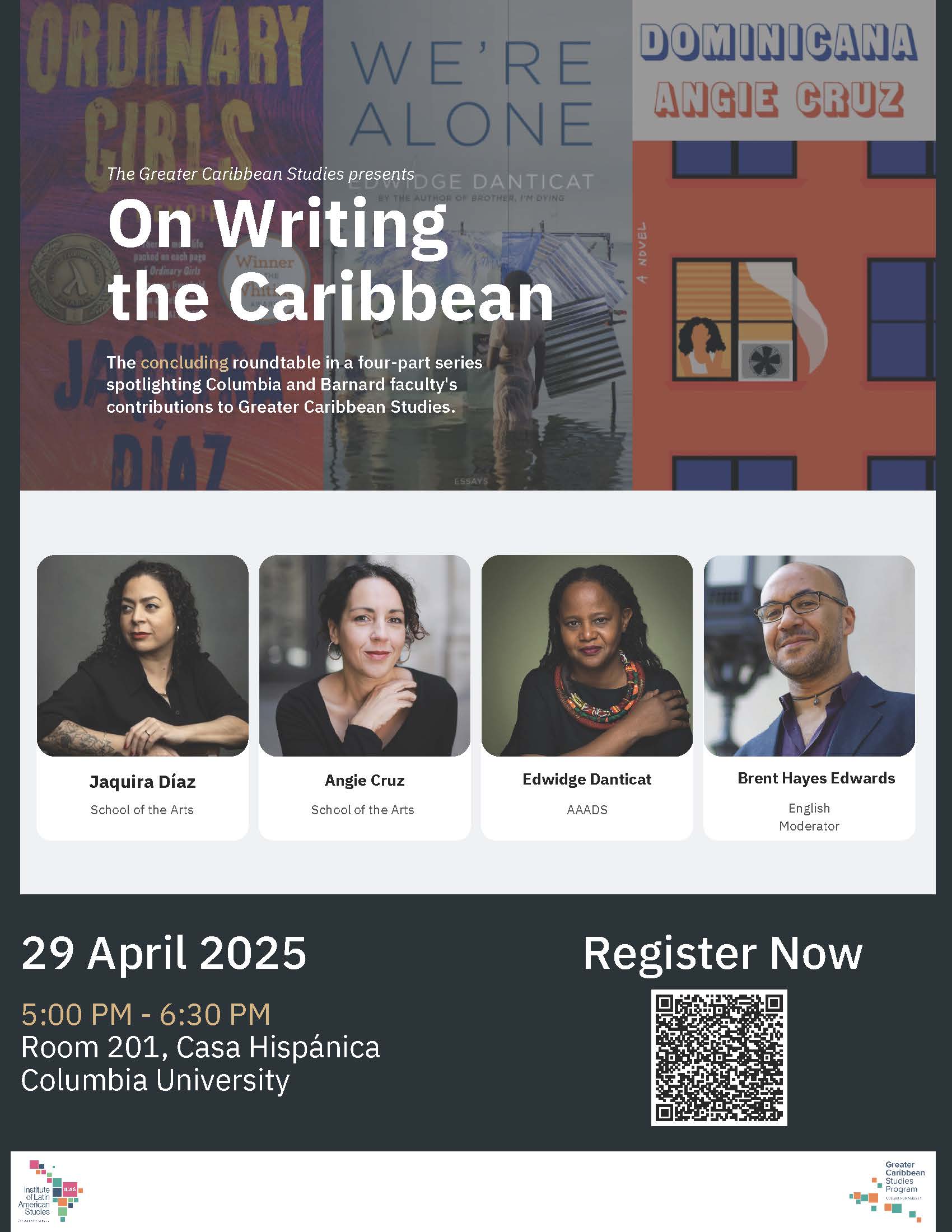
This roundtable—featuring Jaquira Díaz and Angie Cruz (School of the Arts), and Edwidge Danticat (AAADS), and moderated by Brent Hayes Edwards (English)—is the final event in a four-part series spotlighting Columbia and Barnard faculty work on Greater Caribbean Studies.
Register: CU Events
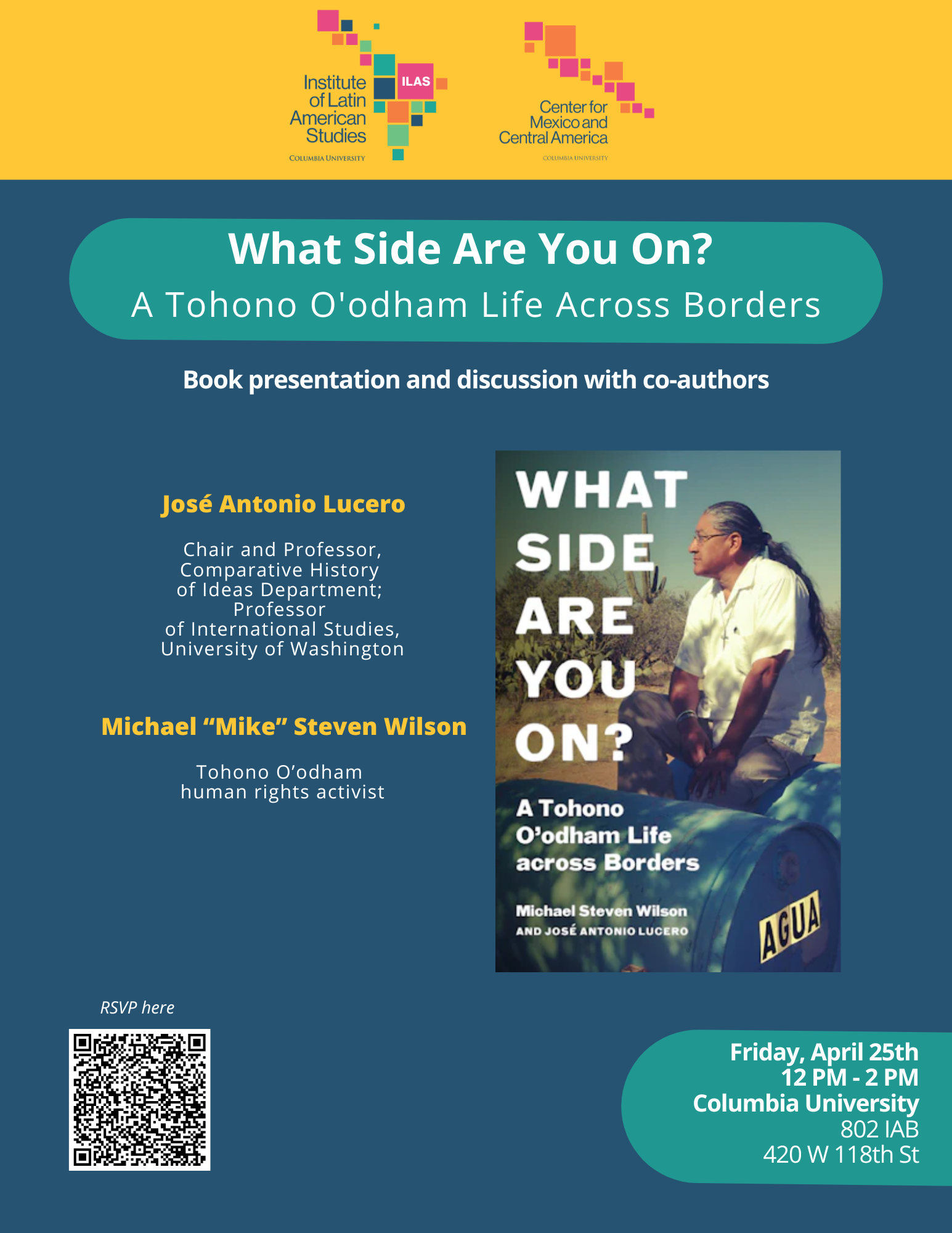
Renowned human rights activist Michael “Mike” Wilson has borne witness to the profound human costs of poverty, racism, border policing, and the legacies of colonialism. From a childhood in the mining town of Ajo, Arizona, Wilson’s life journey led him to US military service in Central America, seminary education, and religious and human rights activism against the abuses of US immigration policies. With increased militarization of the US-Mexico border, migration across the Tohono O’odham Nation surged, as did migrant deaths and violent encounters between tribal citizens and US Border Patrol agents. When Wilson’s religious and ethical commitments led him to set up water stations for migrants on the Nation’s lands, it brought him into conflict not only with the US government but also with his own tribal and religious communities.
This richly textured and collaboratively written memoir brings Wilson’s experiences to life. Joining Wilson as coauthor, José Antonio Lucero adds political and historical context to Wilson’s personal narrative. Together they offer a highly original portrait of an O’odham life across borders that sheds light on the struggles and resilience of Native peoples across the Americas.
Books will be available for purchase at the event. Register here!
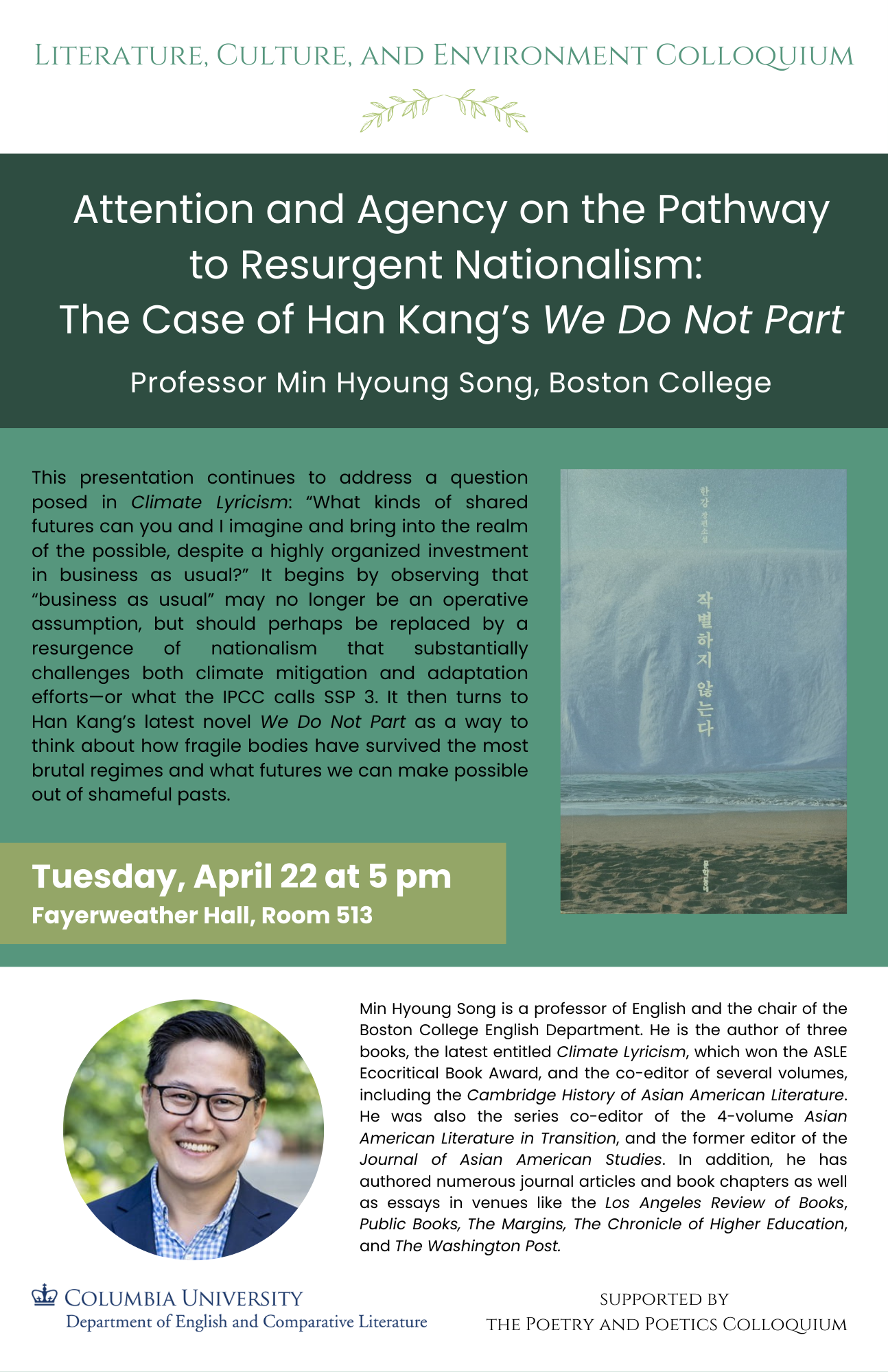

Mālama Hawaiʻi’s Spring Lūʻau is Columbia University’s largest showcase of Pacific Islander culture with live cultural performances and a full dinner of local island cuisine. Mālama Hawaiʻi is a student run organization that aims to share Polynesian culture with Columbia University and the rest of New York. This year’s theme Home Poinaʻole or “Unforgettable Home,” seeks to honor the island homes of our members, with live hula performances that take you to Maui, Oʻahu, Kauaʻi and Hawaiʻi Island. Each ticket includes access to the full performance and dinner. Come and join us for an evening of food, mele, hula, and Aloha.
Supported in part by the Arts Initiative at Columbia University.
https://www.eventbrite.com/e/spring-luau-home-poinaole-tickets-1278103184029?aff=oddtdtcreator
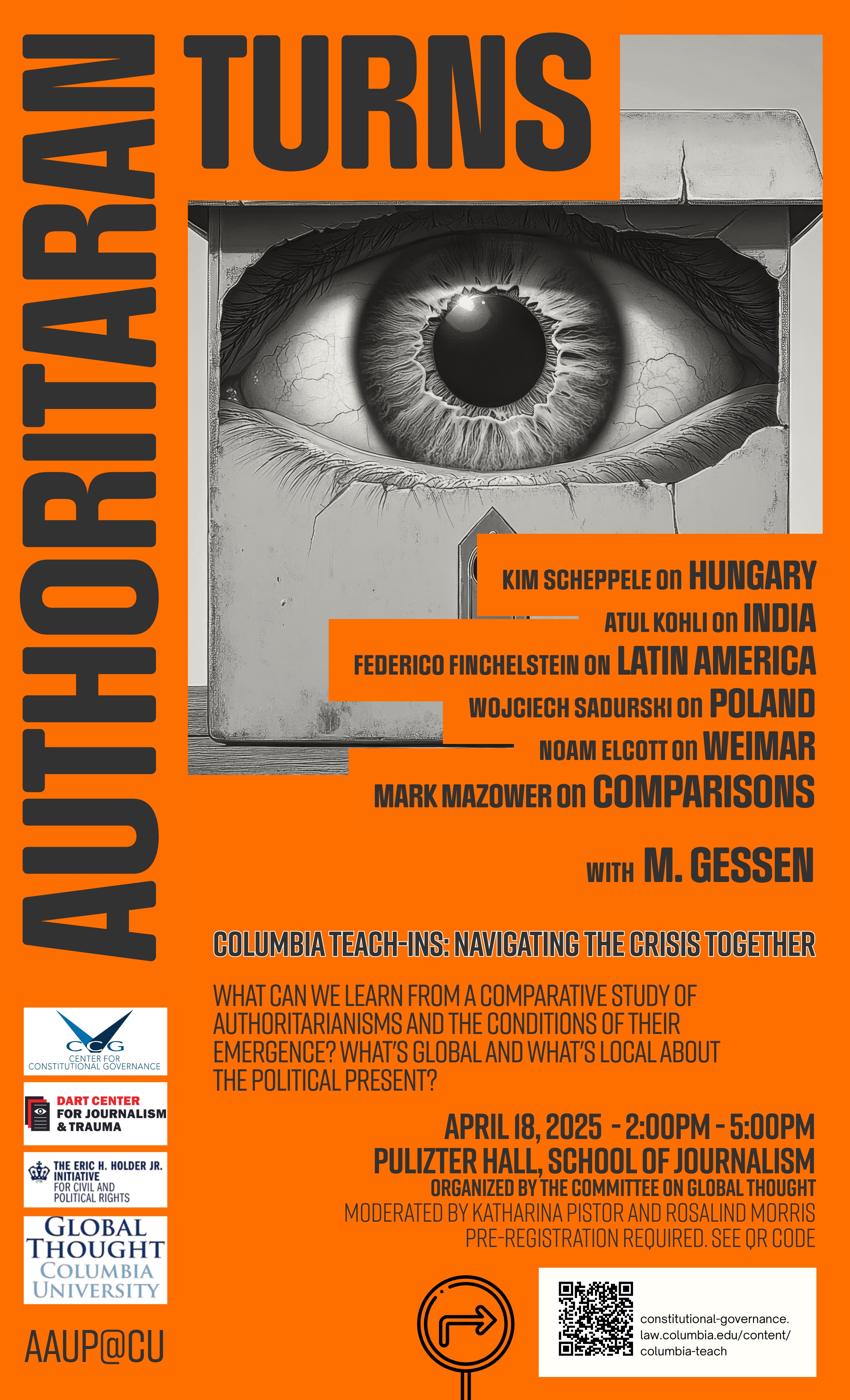
The Committee on Global Thought invites you to a Teach-In, as part of the series, “Columbia Teach-Ins: Navigating the Crisis Together,” co-organized with the Center for Constitutional Governance, Columbia Law School; the Dart Center For Journalism and Trauma’ the Eric H. Holder Initiative; and the Columbia Chapter of the AAUP. This event will take place on April 18, at 2:00pm in Pulitzer Hall, School of Journalism.
WHAT CAN WE LEARN FROM A COMPARATIVE STUDY OF AUTHORITARIANISMS AND THE CONDITIONS OF THEIR EMERGENCE? WHAT’S GLOBAL AND WHAT’S LOCAL ABOUT THE POLITICAL PRESENT?
The Committee moderators, Rosalind Morris and Katharina Pistor welcome panelists Noam Elcott, Federico Finchelstein, Atul Kohli, Kim Scheppele, Mark Mazower, Wijciech Sadurski, with special guest, M. Gessen, to speak about Weimar, Latin America, India, Hungary, Poland, and comparative analysis more generally.
This is the second of four planned events in this series, scheduled for April 11, 18, 25 and May 2; see below.
Authoritarian Turns, April 18, 2025, 2:00-3:30 PM, Pulitzer Hall, Registration
Defunding Science, April 25, 2025, 2:00-3:30 PM, Pulitzer Hall, Registration
Student-Faculty Collaborations to Reimagine the University, May 2, 2025, 2:00-3:30 PM, Jerome Greene Hall, Room 104, Registration

Panelists:
Rebecca Morgan Frank’s fourth collection of poems is Oh You Robot Saints!, and her poems and criticism appear in The New Yorker, American Poetry Review, Ploughshares, Los Angeles Review of Books, Lit Hub, and elsewhere. She serves on the Board of the National Book Critics Circle and is an assistant professor at Lewis University in Illinois.

